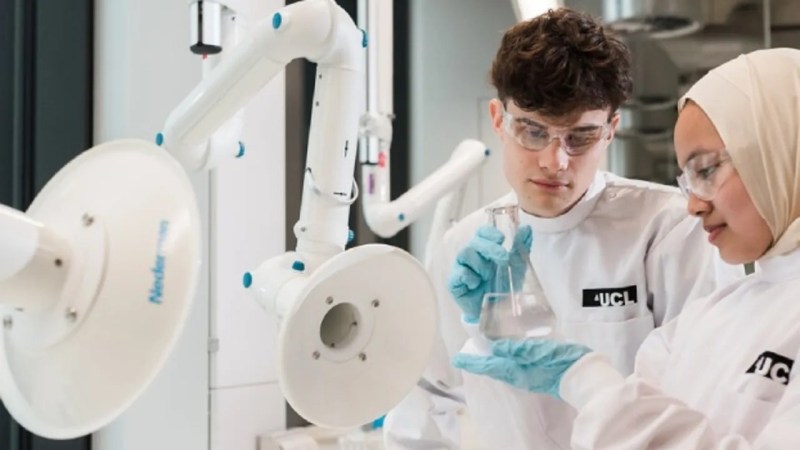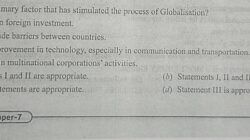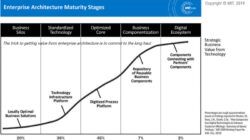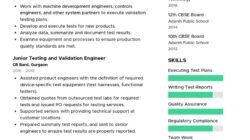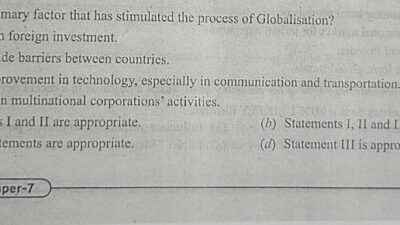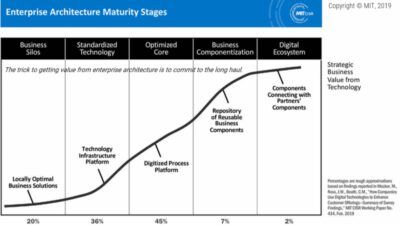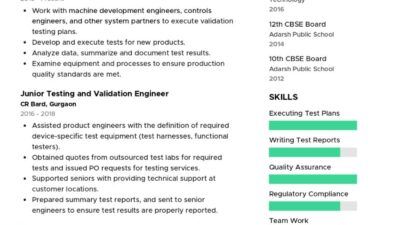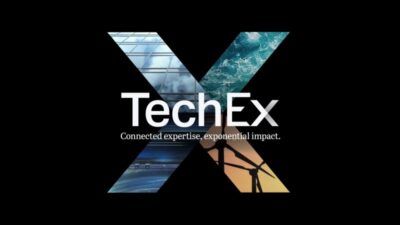Quantum Technology Applications And Management Msc – In this article, we investigate a growing trend in the world scenario of quantum education of quantum technology, the development of master’s programs, with the aim of providing graduates and skills to occupy a job in quantum industry, as well as serving a much shorter calendar than a doctorate. Through global research, we have identified 86 master programs, with substantial growth since 2021. Over time, the master’s degree has become increasingly interdisciplinary, organized by various colleges or through joint undergraduate programs and offer more practical experiences as practices in companies. The information from organizers and program websites suggest that their planned career destinations of their graduates are a wide range of industries, and therefore master programs can be an advantage for the industrialization of quantum technologies. Finally, we have identified various national efforts to increase the quantum work of many countries, “quantum improvements in the program”, which increase the content of existing study programs with quantum content. This can further contribute to the growth and viability of master’s programs as a route to the quantum industry.
The second quantum revolution opened a wide range of opportunities and challenges included in the materialization of new technologies based on the laws of quantum physics. The “quantum industry”, defined as “companies that use Qist [Quantum Information Science] in their business/products or provide technologies that allow this business/products” [1] to specialize quickly. As a result, the need to provide demand for workers is becoming increasingly evident [2], and understanding the quantum educational scenario can provide a valuable view of progress in this direction around the world. In this sense, several recent studies have dealt with the question of which qualifications, training and skills are necessary to enter the quantum industry [3, 4].
Quantum Technology Applications And Management Msc

A specific example of the different skills that can be used as a reference in the development of educational programs is the structure of European powers for quantum technologies [3, 5]. Efforts to standardize future quantum work are already being implemented and indicated, for example, levels of competition based on knowledge and expected skills [3] aligned with industry needs. After that, several studies also presented specific guidelines, which could be followed to create educational programs on Quantum, including baccalaureate and master’s programs [6-9].
Quantum Technology For Defence
Exactly what the needs of industry are and will be important issues, because they should inform educational practices. Hughes et al [1] investigated the educational requirements of different types of position in the quantum industry. When they researched 57 companies about knowledge and important skills for the main roles of their organizations. The distribution was quite impressive in the number of jobs, even quite technical, for which companies did not require a doctoral graduate to fulfill, instead of mentioning that the master’s graduate could occupy the position. For example, with regard to the “cryogenic” position, about 60% of the companies surveyed stated that a master’s degree could occupy this role. The authors say the most specialized papers required a higher fraction of doctoral graduates. However, as the quantum industry is continually diverse in new market markets and domains such as medical assistance, transportation, finance and many others, we hope that the proportion of positions at the application level will increase and, therefore, the number of functions accessible to dominant graduates could increase. For this reason, masters programs can be a key route to the quantum industry, offering “specific quantum experience” [2] without the significant timeline associated with doctoral programs.
Fox et al [4] argued that, despite the prevalence of physics departments to prepare students for the quantum industry, engineers are needed for quantum products. With regard to the skills needed to enter the quantum industry, it is important to keep in mind that “classic skills” in physics and engineering are highly valued by the quantum industry, especially in the hardware development sector. The authors suggest that, from 2020, the relevant quantum knowledge of engineering programs was lacking and that master’s studies can be provided to graduates in unwanted background engineering [4]. AIELLO et al [10] and GREINERT et al [3] have come to the same conclusion, arguing that Quantum Information Science and Engineering (QISE) should be included in all major stem diplomas to promote widespread quantum literacy.
Although quantum mechanics in undergraduate programs have been traditionally associated with Physics Departments, authors such as Asfaw et al [6] emphasize the importance of expanding to other fields, including, but without limiting themselves to applied mathematics, chemistry, computer engineering, material engineering and molecular engineering, aligning with their framing and demands, amount. In their research in 2021, Aiello et al [10] identified that among teachers who taught a quantum master’s degree, physics departments were predominant (41%) followed by 35%in various departments (those who are jointly offered by various entities or live in an interdisciplinary entity “[10]), and only 18%.
After the analysis of the catalogs of the course of 305 public institutions in the United States by Cervantes et al. [11], it was shown that while the Departments of Electrical and Computer Engineering (ECE) offered a large number of QIS courses, fields strongly affected by quantum computing science, physics departments had the largest number of QIS courses compared to other departments.
Quantum Technology Master’s: A Shortcut To The Quantum Industry?
Although not exclusively at the master level, recent research [12] indicates that the course content also differs in programs taught by different colleges. CS fields usually teach more details about topics such as QT algorithms, while physics faculties seem to cover in more detail the theoretical and mathematical base of quantum mechanics. Cervantes et al [11] suggest that it would be beneficial to recognize the interdisciplinary nature of Qi to improve the quality of education in this field, implementing a collaboration between departments for the progression of IQ education.
Several authors [1, 2, 10] said that practical experience is of crucial importance to offer “specific quantum experience” [2] desired by the industry. Researching this, Aiello et al [10] addressed a sample of quantum science programs and masters engineering to examine if and how they include practical experiences. They analyzed 14 master programs for the inclusion of experience in laboratory or physical demonstrations, practices with partners or industrial projects and research -related theses. Of these, only 5 offered students the opportunity to spend time working with an industrial partner, who may be far from ideal, as these opportunities can be beneficial to give access to the job market to graduates. The relatively small sampling and the pace at which quantum technologies evolve, require a more detailed view of which experiences are offered by Quantum’s master’s programs, as we are addressing in this article.
Equally important, the perspective of students regarding QT and Quantum Careers was recently analyzed in the Stem Disciplines. A recent analysis revealed that most students did not know “anything” about quantum races (55%) and, as a result of focal groups, students realized that the quantum is only for “geniuses” or for those with advanced education, such as obtaining a doctorate [13]. This contrasts with the prospects of industry provided by authors such as Hughes et al [1] and AIELLO et al [10]. The growing prevalence of master’s programs, which provides a route to the sector that is not based on the significant and potentially intimidating commitment that is a doctorate, can help change students’ perspectives to align with industry needs. In this work, we examined whether or if masters could provide an alternative path to the quantum industry.

Many Nations of the World Have Adred to the Importance of Master’s Programs by Ephasing Them in the National Quotegies, Including Europe [14, 15] United States [16], Israel [17], South Korea [18], Australia [19], France [20], Switzerland [21] [22], Canada [23] [24], Slovakia [25], Denmark [26], Netherlands [27], Thailand [28], Germany [29]. In particular, South -Frica emphasizes the importance of sharing curricula in “disciplines that vary from physics, engineering and computer science.” In addition, programs that specialize in a master’s level can be introduced to “accelerate research training and meet industry needs” [22]. Another example is Switzerland, which highlights the need for interdisciplinary education as a “collaborative educational project that includes federal institutes, universities and, if possible, [universities of applied sciences]” [21]. Among its -chave actions, Ireland emphasizes the need to share resources and knowledge, for example, through consortia for master’s and doctoral training, and increase the extension of quantum education as part of learning offers in higher education institutions (Heis) ” (24).
About The Faculty Of Applied Sciences
In Europe, the service was to offer quantum experience to non -other master’s degrees, through experimentation with an “Open Master” program as part of the QTedu European community [30-32]. There are other efforts around the world that represent a significant increase in quantum education at the national level, an emerging trend that will be examined later in the discussion section.
In this article, we investigate the scenario of the Master in Quantum Technology (QT). As well as the number of master programs
